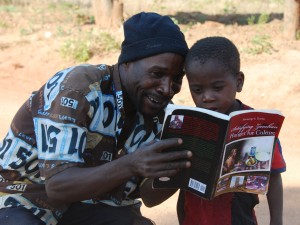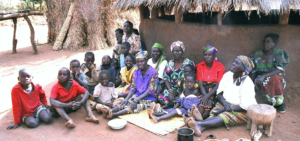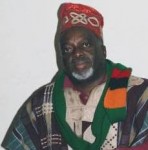Welcome!
Welcome to the Hunger for Culture site where you will find information and knowledge about Zambian/African lifestyle and philosophy. While the many perspectives and different varieties of articles are from the viewpoint of a native Zambian who now lives and teaches in a college town in Virginia, they apply to common experiences, academic wonders of research and deeper philosophical questions that pertain to all humans. The importance he places on Zambian/African values is evident on this site, and you are invited to interact via comments to blogs and articles. It is the author’s wish that other Zambians would find ways to share their academic experiences and fond memories of home, and hopes for preserving their history, culture and technology.
You may not even be aware of this as you hastily click and glimpse past hundreds of web pages on the internet: you may have “Hunger for Culture”. Because of this unrecognized hunger for culture, you may experience lack of purpose and meaning in life, total obsessions with online technology, isolation, loneliness, suicidal feelings, disillusionment with one’s deep religious or spiritual beliefs or lack of them, drive for more and excessive material possessions, drug abuse, missing and craving for human social connections, a feeling of hunger even when you eat tons of food, unfulfilled dreams, unanswered prayers, insatiable sexual desires that you have learnt can only be fulfilled if you have more physical sexual partners or affairs. These and many more are not so obvious symptoms of hunger for culture. Before you read anything else on this web page you need to take a few minutes to read Kufwasa and Kukomola as they are the twin key philosophical foundations on the opposite ends of a spectrum of life before you can begin to recognize and satisfy the wide spread hunger for culture as a member of the 7 billion people to day.
 The family is quickly disintegrating in our lives, we have been uprooted from farming or roaming in the open Savannah in Africa to cities, and secluded in cold boxed structure that we call home. We are scattered around the globe and fast substituting human connections with cyberspace connections. Most of us are increasingly uncomfortable with direct human connections. The knowledge for Hunger for Culture is from Zambia and Africa but this should not fool you. Human origins are in Africa and Africans may still hold the keys for satisfying our current and escalating Human Hunger for Culture.
The family is quickly disintegrating in our lives, we have been uprooted from farming or roaming in the open Savannah in Africa to cities, and secluded in cold boxed structure that we call home. We are scattered around the globe and fast substituting human connections with cyberspace connections. Most of us are increasingly uncomfortable with direct human connections. The knowledge for Hunger for Culture is from Zambia and Africa but this should not fool you. Human origins are in Africa and Africans may still hold the keys for satisfying our current and escalating Human Hunger for Culture.
The classifying of humans into separate countries, tribes, races, religions, different cultures, Islands, languages, regions, are all superficial because we are human beings who originally migrated from Africa thousands of years ago. We are all experiencing Hunger for Culture as technology devastates or weakens our ability to truly enjoy and create meaning and human connections in our lives. The book that I authored “Satisfying Zambian Hunger for Culture” is highly recommended as it will provide you with what culture and technology is defined when stripped of all the modern complicated sophisticated explanations. This will make it easier for you to both understand it and to be able to satisfy the hunger for culture.
Where did the 7 billion Humans come from?
One to two hundred and fifty thousand years ago, the Homo sapiens (Anatomically Modern Humans) evolved from Africa. The Africans first scattered in small bands in Savannah Africa stretching from Ethiopia, Egypt, Kenya, all the way to South Africa. The Africans created the culture and technology including language that proved to be crucial to the waves of migration to the rest of the world through present day Saudi Arabia, eventually creating the 7 billion people in the rest of the world today.
Mwizenge Tembo is the author of all the articles on the entire web page including photographs. He is probably one of those very few living Africans who have a very strong last link between the fast diminishing old precious traditional Africa and the modern age of globalization. He spent his early childhood in the village exclusively among the Tumbuka people of Lundazi District of Eastern Zambia in Southern Africa in the late 1950s.
He was surrounded by hundreds of loving people at his mother’s village; young cousins, sisters, brothers, mothers, fathers, uncles, aunts, grandparents, clans men and women, and even larger numbers of dozens of relatives and close kin at his father’s village which was about two miles away. It was an extraordinary life surrounded by fertile soil with good subsistence farming, communal work, song, dance, customs, rituals, rich and deep indigenous language, and good food. Subsistence farming had a strong heritage in the area as his paternal grandfather smelted iron and forged axes and hoes in the 1890s.The encroaching world of external disruptive influences of colonialism and Europeans at that time was as distant as it could be from his childhood. The adults around him in the village had a deep lasting positive impression on him that he cherishes up to this day.
Leaving the comfort of the childhood routine of his village to first step into a school classroom at Boyole primary School is a very deep memory. His school journey took him away from the village to the middle school at Tamanda Dutch Reformed Church Mission Boarding Upper School, to Chizongwe Secondary School in Chipata, to University of Zambia in the Capital City of Lusaka, and eventually to the Michigan State University in the United States for his Masters and Ph. D.. These profoundly different life experiences gave him a unique appreciation of the much deeper role of technology and culture in sustaining our human lives. When we do not have the complete deeper experiences from our culture as human beings, we experience a unique chronic yearning in our lives that is difficult to fulfill. This Hunger for Culture is what this web page seeks to satiate.
Contemporary Life of Cyberspace
Contrary to the contemporary common, superficial, abstract, superiority complex-tainted and simplistic academic understanding of culture as simply song, dance, customs, this web page takes the more meaningful perspective that culture is deeper. It takes the holistic deeper perspective that culture involves not only technological production, but more important language, customs, dance, music, values, systematic socializations, rituals, beliefs, philosophy, gender, marriage, love and challenges of gathering and transmitting knowledge and satisfying the sense of curiosity. All of these are addressed and articulated within the crucible of strong communal relationships among the people. It is the crucible of strong human relations that bring humans the most emotional and physical safety and intuitive comfort.
The Web Page is a Paradox
The paradox of all of this is that in the contemporary world, we have to break down everything into discrete pieces to enable human comprehension or to enjoy ourselves. People who exhibit the least boundaries between the various dimensions of culture and technology have the happiest and most effective life. Tembo is fully aware that this goes against the contemporary premise that everything including culture has to be chopped into small pieces for purpose of selling, comprehension, and to accommodate short attention spans. In many ways the web page is a contradiction as it has so many separate pieces of writing, some short and some long.
The hope is that this web page will serve a bigger and deeper more holistic purpose in human life than serving some of the purely momentary fleeting superficial contemporary human inclinations. The two fundamental philosophies or foundation that undergird all the articles, poems, music, dance, discussions of technology and other aspects of culture and technology on this web page are these two: Kufwasa and Kukomola.
